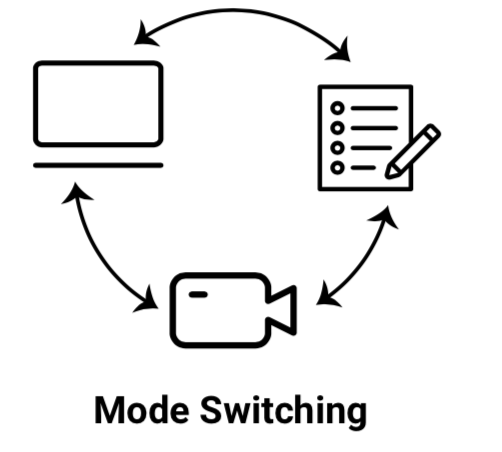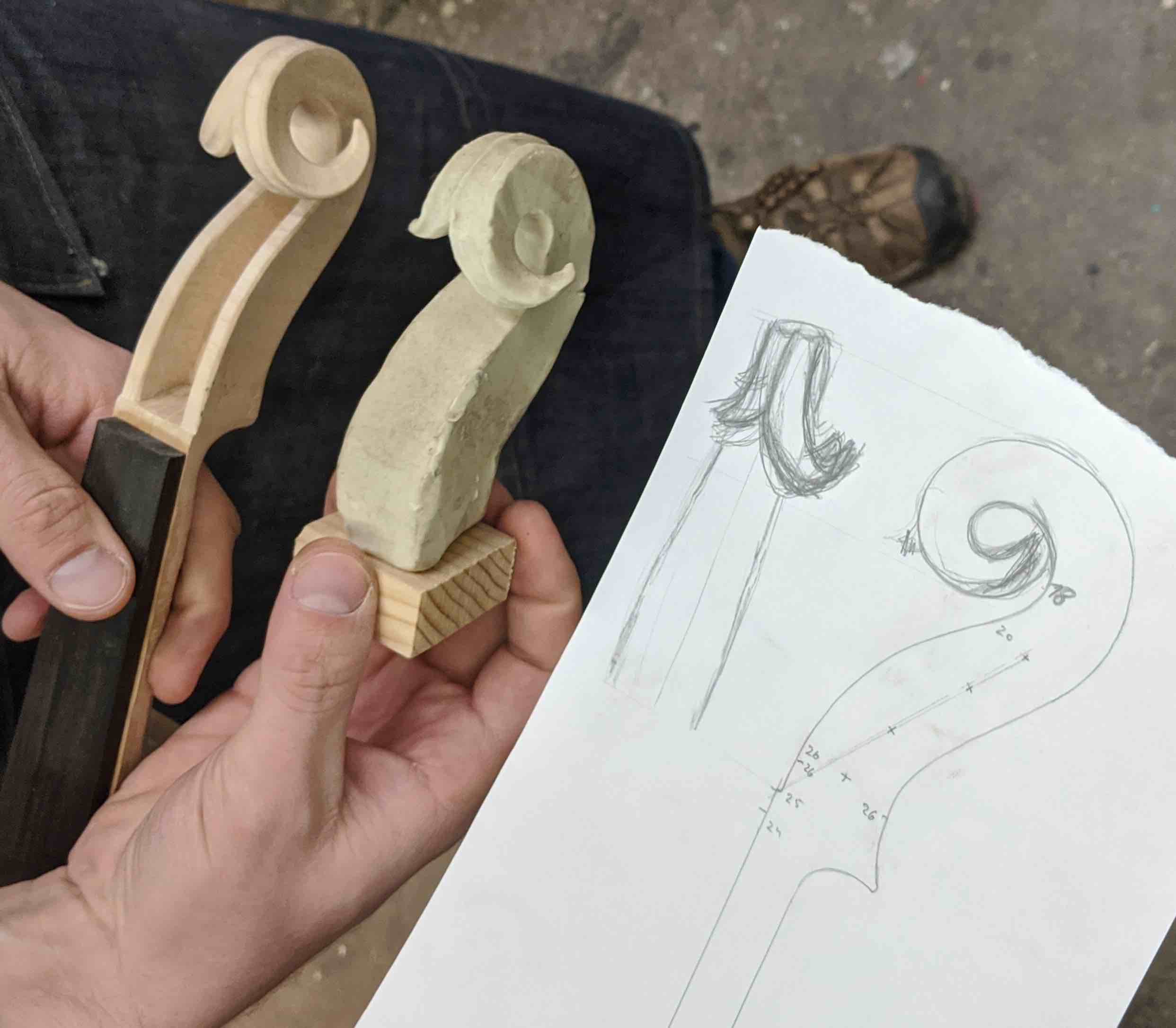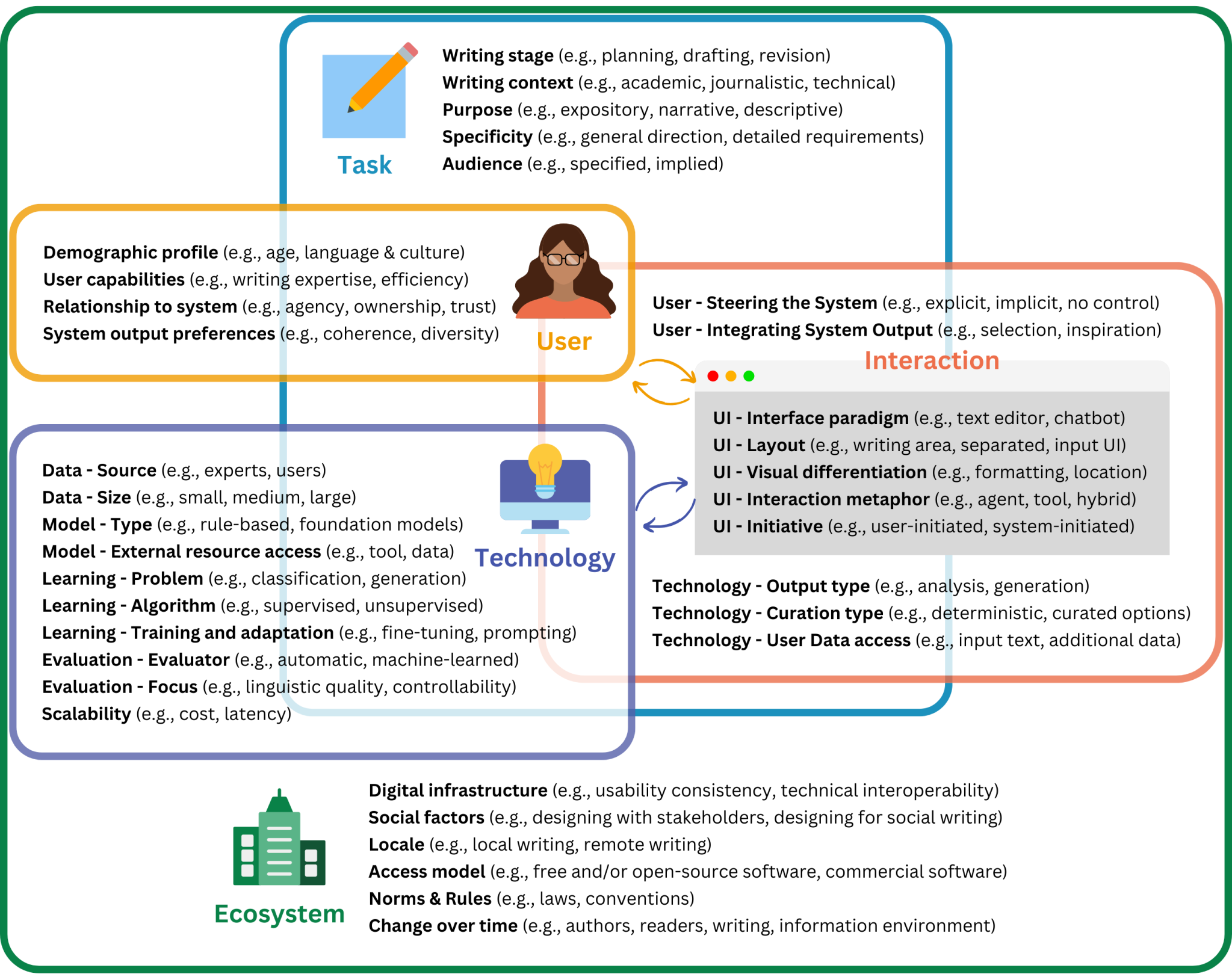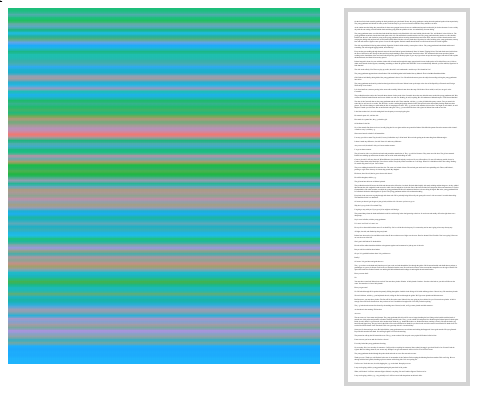| |
A Design Space for Intelligent and Interactive Writing Assistants
Mina Lee, Katy Ilonka Gero, John Joon Young Chung, Simon Buckingham Shum, Vipul Raheja, Hua Shen, Subhashini Venugopalan, Thiemo Wambsganss, David Zhou, Emad A. Alghamdi, Tal August, Avinash Bhat, Madiha Zahrah Choksi, Senjuti Dutta, Jin L.C. Guo, Md Naimul Hoque, Yewon Kim, Simon Knight, Seyed Parsa Neshaei, Antonette Shibani, Disha Shrivastava, Lila Shroff, Agnia Sergeyuk, Jessi Stark, Sarah Sterman, Sitong Wang, Antoine Bosselut, Daniel Buschek, Joseph Chee Chang, Sherol Chen, Max Kreminski, Joonsuk Park, Roy Pea, Eugenia Ha Rim Rho, Zejiang Shen, Pao Siangliulue
CHI 2024
In our era of rapid technological advancements, the research landscape for writing assistants has become increasingly fragmented across various research communities. We seek to address the challenge by proposing a design space as a structured way to examine and explore the multidimensional space of intelligent and interactive writing assistants. Through community collaboration, we explore five aspects of writing assistants: task, user, technology, interaction, and ecosystem. Within each aspect, we define dimensions and codes by systematically reviewing 120 papers while leveraging the expertise of researchers in various disciplines. Our design space aims to offer researchers and designers a practical tool to navigate, comprehend, and compare the various possibilities of writing assistants, and aid in the design of new writing assistants.
|
| |
Interacting with Literary Style through Computational Tools
Sarah Sterman, Evey Huang, Vivian Liu, Eric Paulos
CHI 2020
Presents a computational technique to surface style in written text. We collect a dataset of crowdsourced human judgments of style, derive a model of style by training a neural net on this data, and present novel applications for visualizing and browsing style across broad bodies of literature, as well as an interactive text editor with real-time style feedback. We study these interactive style applications with users and discuss implications for enabling this novel approach to style.
|


 Best Paper Award
Best Paper Award 







